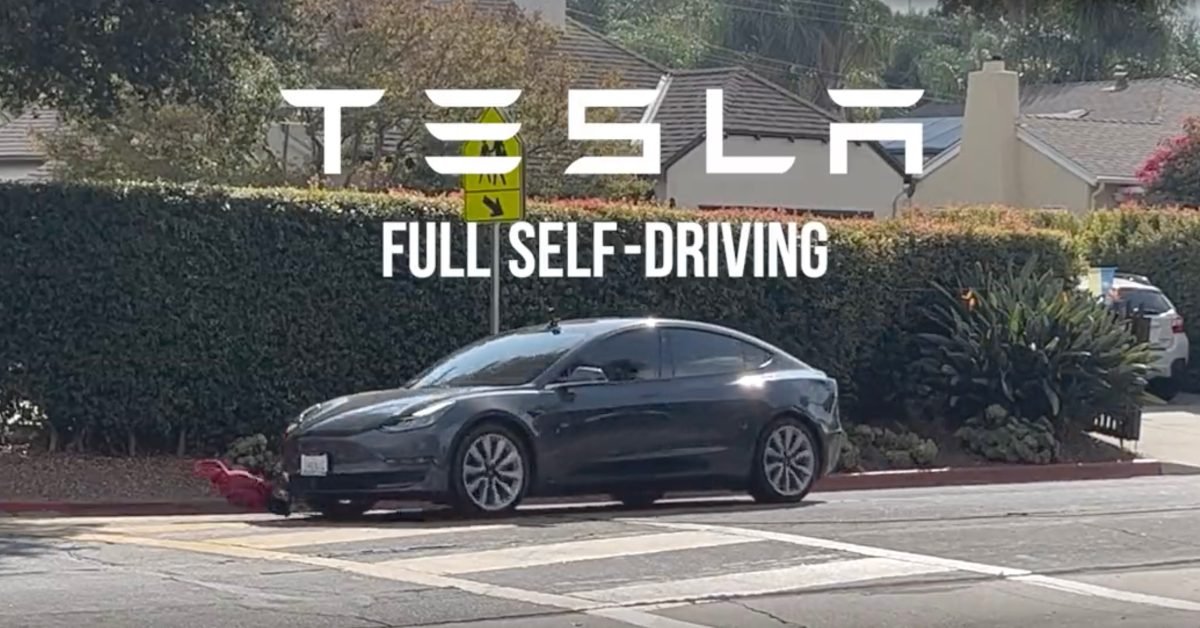Tesla has been forced to prove a customer’s full self -driving package after an arbitrator decided that the carmaker did not deliver it.
Tesla has promised its car owners that every vehicle it has built since 2016 has all hardware capable of unattended self -driving.
The car manufacturer has sold a “full self-propelled” (FSD) package to deliver this unattended self-propelled capacity through over-the-air software updates.
Almost a decade later, Tesla has not yet delivered its promise, and its claim that the cars’ hardware is capable of self -driving has been proven incorrectly. Tesla had to update all cars with HW2 and 2.5 computers for HW3 computers.
In January 2025, CEO Elon Musk finally admitted that HW3 will also not be able to support self -driving and said Tesla will have to upgrade computers. 6 months later, Tesla has not yet communicated a plan for retrofitting to owners.
Tesla is now trying to deliver her promise of unattended self-driving on HW4 cars, which have been in production since 2023-2024, depending on the model. However, there is still considerable doubt that this is possible as the best available data indicates that Tesla only achieves about 500 miles between critical release with the latest software on hardware.
The situation creates one S.Ignificant responsibility for Tesla, which already has to replace computers in millions of vehicles, and it may be necessary to do so in millions more.
On the other hand, many customers lose faith in Tesla’s ability to deliver his promise and control this computer mounting situation. Some of them have tried to be reimbursed for their purchase of the full self -propelled package that Tesla sold from $ 8,000 to $ 15,000.
A Tesla owner in Washington managed to get the carmaker to prove the FSD package, but it wasn’t easy.
The model of 2021 was Marc Dobin and his wife’s third Tesla. Due to his wife’s falling mobility, Dobin was fascinated by the FSD package as a potential way to give her more independence. He wrote in a blog post:
But the FSD was more than hype for us. The promise of a car that could drive my wife around gave us hope that she would maintain independence as her motor skills fell. We paid an extra $ 10,000 for FSD.
Teslas FSD quickly disillusioned dobin. At first he couldn’t even activate it because of Tesla, which limits the beta access through a “security result” system, something he pointed out was never mentioned in the contract.
Furthermore, the function required monitoring a driver at all times, which was not what Tesla sold to customers.
Tesla does not make it easy for customers in the US to seek a refund or sue Tesla as it forces buyers to review arbitration through its sales contract.
It did not deter Dobin, who happens to be a lawyer with many years of experience with arbitration. It took almost a year, but Tesla and Dobin eventually found themselves in arbitration, and it did not go well for the carmaker:
Almost a year after filing, the evidence hearing was held via zoom. Tesla produced a witness: a field -technical specialist who admitted that he had not checked which equipment was sent by our car had not reviewed our driving logs and did not know details of the FSD system installed on our car if any. He had not spoken to any sales representative, we processed or reviewed the contract’s integration clause.
There was both a Tesla lawyer and an external lawyer representing Tesla during the hearing, but the witness was not equipped to answer questions.
Dobin wrote:
He was a service technician, not a lawyer or seller. But that’s what Tesla brought to the consultation. At the end, I felt really bad for him because Tesla set him up to be a human punching bag – someone unprepared to answer key questions, forced to defend a system that he obviously did not understand. As I examined him, a Tesla-Intern lawyer sat quietly while the company’s external adviser tried to soften the witness’s battle.
He focused on Tesla’s lack of disclosure of security results and the fact that the system does not meet the promises given to customers.
The arbitrator sits with dobin and wrote:
The evidence is convincing that the function was not functional, operational or otherwise available. “
Tesla was forced to reimburse the FSD package $ 10,000 plus taxes and pay for the nearly $ 8,000 in arbitration fees.
As Tesla forces arbitration through its contracts, it is required to cover costs.
Electek Tag
This is interesting. Tesla awarded two lawyers to this case in an attempt to avoid proving $ 10,000, knowing that it would have to cover the expensive arbitration fees – probably to lose tens of thousands of dollars in the process.
It makes no sense to me. Tesla should have a standing offer to reimburse FSD for anyone who requests it until it can actually deliver its promise of unattended self -driving.
That’s the right thing to do, and the fact that Tesla would waste money on fighting customers requesting a refund is really narrative.
Tesla is simply not ready to do the right thing here, and it did not offer well for the computer retrofitting and all the other obligations regarding Tesla FSD.
FTC: We use income that earns Auto -connected links. More.
